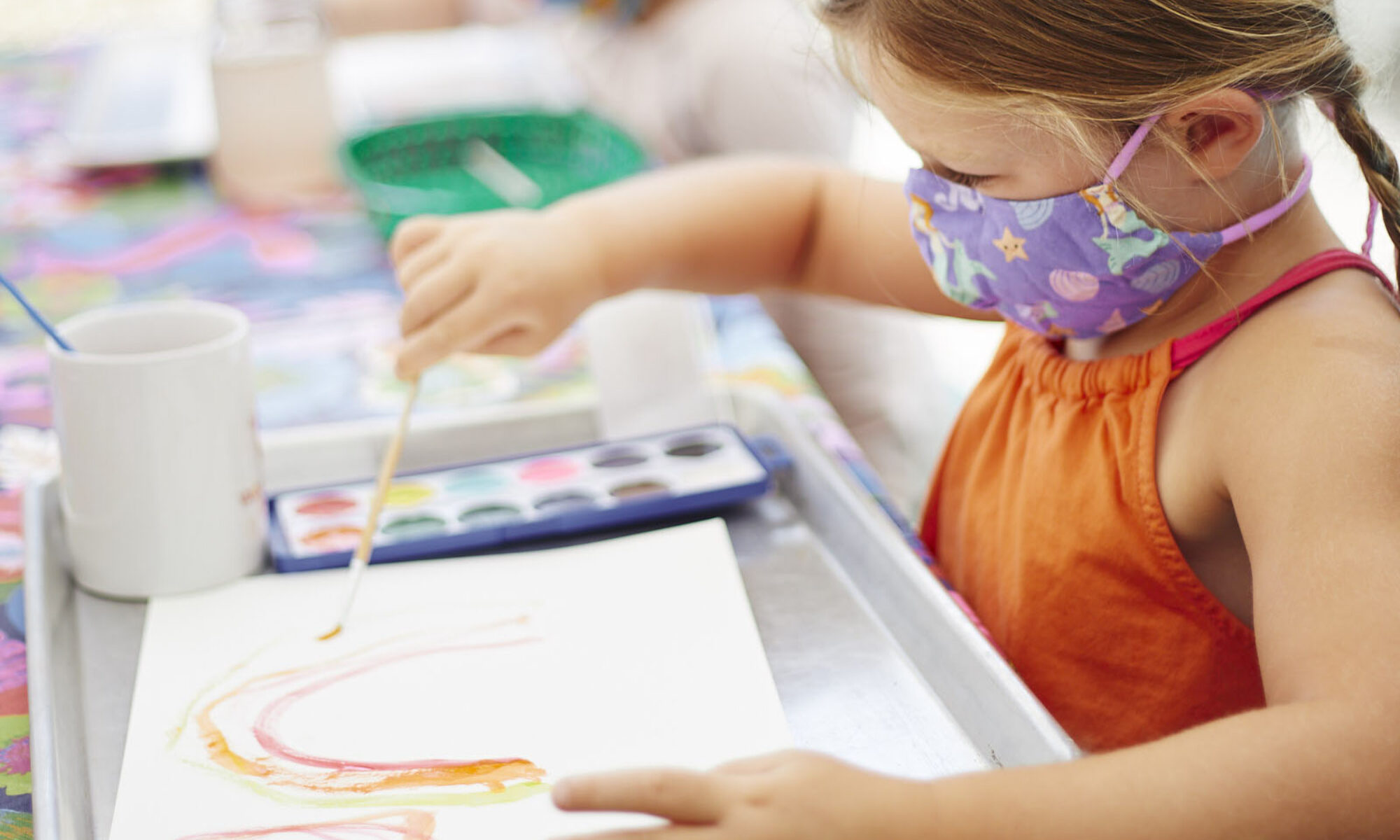At three and four years of age, children start to interact more closely with their peers, beginning the early stages of cooperative play. While they are learning these new skills, one of our goals as parents and teachers is to model appropriate ways to enter and exit play, resolve conflict and build friendships.
Circle time is more focused as the teacher builds vocabulary through shared stories, music and song. The curriculum is developmentally appropriate and includes continued exploration of the learning centers, that builds on a child’s natural inclination to develop academic skills through play and experience.
A typical day will include:
- Greetings / Discovery Time: Children are encouraged to find their own name badges and cubbies before they begin their day. They continue to explore all the different areas of the classroom, and show their independence and new social skills as they choose to engage in cooperative play and understand the fairness of taking turns. The children are becoming much more able to focus on more sophisticated projects for longer periods of time and are occupied for longer in each center than before.
- Clean-up: Children are now very able to participate in the clean-up process.
- Outside: Weather permitting, it is great to let the kids have outside exploratory time too – time to run, jump, play in the sand box, climb or try other outdoor activities on offer.
- Snack: Learning about cleanliness is part of our snack routine, as all children and adults wash their hands before sitting down to snack. Children serve themselves and continue to develop social skills, from sitting down to eat with others, to cleaning their place before they leave the table.
- Story Circle: The children now easily participate in circle time activities, joining in with songs and finger-play, and attending to the story presented. This is also a chance to introduce more interactivity with the children being encouraged to share their observations and thoughts.
- Music: Music is a wonderful time for children to explore rhythm and tunes, as well as dance and movement. We often have bells, or colored scarves to dance with, and parents join in as much as the children.
- Goodbye Circle: As the session comes to a close, children are now much more able to sit on their own, with adults nearby, for songs, finger-play, and games, before everyone joins together to sing a goodbye song.
Parent Education
As you leave the “terrible twos” and move into your child’s third year, you may feel a great sigh of relief. For a while it will seem like your content and compliant child has returned to you! However, around the age of three-and-a-half, there is a period of great disequilibrium again, and you may encounter some challenging behaviors.
This stage can manifest itself both physically and emotionally. Your once-confident child may stutter, stumble, express great fears, and become unsteady in all that s/he tries. You may notice a strong need for tensional outlets such as thumb sucking, nail biting, the need for blankets or a favorite stuffed animal. You will frequently hear, “I can’t see” when they are being read to. There is a great need for your child to control their environment, yet nothing seems to please him/her. They are amazingly sensitive to others’ reactions, and can pick out quite easily who will have the greatest response to what they are doing, saving their wrath for those who love them most! Routines become difficult. On the positive side, your child is exploring play in a new and exciting way (cooperative play), is learning to express their emotions, and is often aware of how others are feeling. They are imaginative and show great innovation.
While it may seem hard to believe, this non-compliant, and seemingly stubborn, behavior characteristic of this period represents an important milestone in children’s cognitive and emotional development. In the VMCP classroom and at the Parent Ed meetings, you will learn how to aid your child in developing a healthy balance between autonomy and cooperation. You will also experience the joy of watching the children start to interact more with their peers in the early stages of cooperative play, while learning what is developmentally appropriate for this age. In a year when your child begins to develop his or her own friendships, you too will find yourself surrounded by the support and nurturing of other parents, developing relationships that last throughout your child’s school experience.
